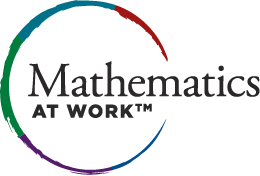DEMOGRAPHICS
Emily Gray Junior High School is a part of the Tanque Verde Unified School District, serving seventh and eighth grade. Driven by a commitment to academic excellence and lifelong learning, their mission is to foster a safe and supportive community where all students feel empowered to achieve academic success.
430 Students
- 21% free or reduced lunch
- 3% Special education
Emily Gray Junior High School's CHALLENGE
Throughout her term as the Emily Gray Junior High School principal, Elizabeth Egan consistently advocated for Solution Tree and the Professional Learning Communities (PLC) at Work® process.
The entire Tanque Verde School District had already been working through the PLC process—and as a result, the school had gone from a C to an A—when Principal Egan realized the math team at Emily Gray needed more support to improve student achievement and move the needle on their proficiency levels. They also needed an additional math teacher on their team.
When Egan attended the annual Mathematics in a PLC at Work Summit, she discovered the perfect expert resource for her team. Having a background in mathematics, Egan participated in the summit breakout sessions was immediately impressed by educational presenter and author Mona Toncheff.
“Mona was talking about students and student learning and the power of why students need that conceptual understanding to see success. I’ve always believed in that understanding, but having someone else repeat it, I knew she was the person our math team needed on campus to drive that passion and excitement,” Egan said.
Inspired by Mona’s experience and genuine connection with people at the summit, Egan made it her mission to bring her expertise to Emily Gray Junior High School.
IMPLEMENTATION
Egan’s math teachers were immediately receptive to Mona’s ideas and embraced the professional development sessions.
With guidance, Emily Gray began implementing practices to improve their assessments, interventions, and essential standards. Collaborative teams worked to plan the school year and create proficiency maps to guide their learning targets.
They further developed Professional Learning Team (PLT) documentation that allowed teachers to review Emily Gray’s mission and vision, school goals, team norms, and the four critical questions of a PLC.
The PLT documents also enabled teachers to follow individual student learning and provided strategies for improvement.
Math essentials classes for students needing additional support were also added. Seeking to create meaningful tests that aligned with essential learning standards, the teachers implemented several strategies.
They incorporated learning targets into each question, clearly labeling point values and the corresponding target for each. This transparency provided students with a grounding point, allowing them to understand the purpose and value of each question.
To monitor student progress throughout each module, the seventh-grade math teacher team created a comprehensive spreadsheet tracking all CFAs and tests. This helped them design effective W.I.N. (What I Need) interventions for each student along with engaging extension activities they could include in their daily lesson plans.
“With this learning environment we’ve established, the teachers feel safe to take risks and try new things, and that, in turn, allows the students to feel safe and explore. Every student now sees themselves as a mathematician.”
RESULTS
Principal Egan feels she’s become a better leader since using the Mathematics at Work framework and receiving guidance from Mona.
According to her, Mona’s clear vision had everyone on board, and teachers continue to express their appreciation for the collaboration methods and ideas she shared.
As a result of teacher teams creating strategies for students to understand assessments and grading, students felt more confident tackling challenging problems, knowing their greater worth in the assessment. 25% of students increased their CFA scores, and 75% of students improved after initial testing on modules. The graph below offers a snapshot of the progress that is being realized throughout the school.
“Thank you for creating a culture and environment where I feel safe to try new things and learn alongside with the kids.”
Math 7 Student Test Scores
Why Mathematics at Work™?
Our experts will help you establish a reflect, refine, and act formative learning process for students, teachers, and mathematics education leaders. Establish math strategies for assessment, intervention, homework, and lesson designs that ensure every student can learn mathematics.
OUR PROMISE: No other professional learning company provides our unique blend of research-based, results-driven services that improve learning outcomes for students.

